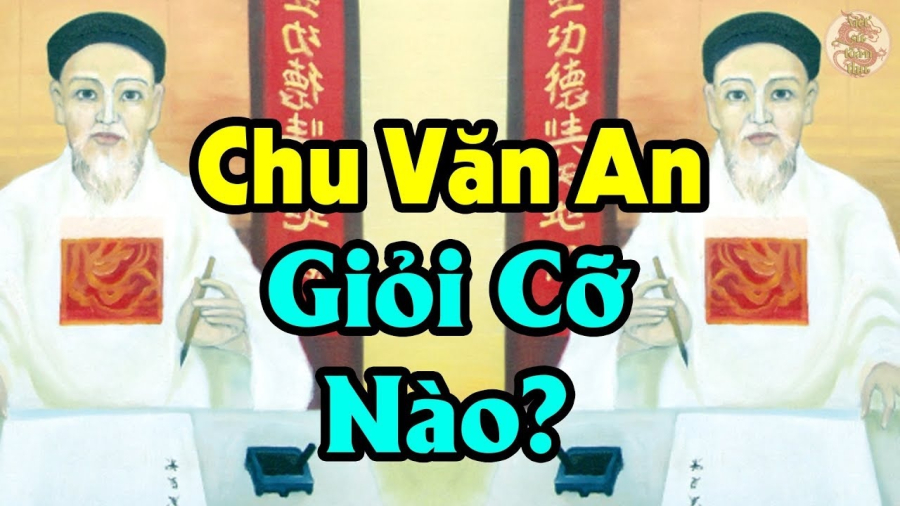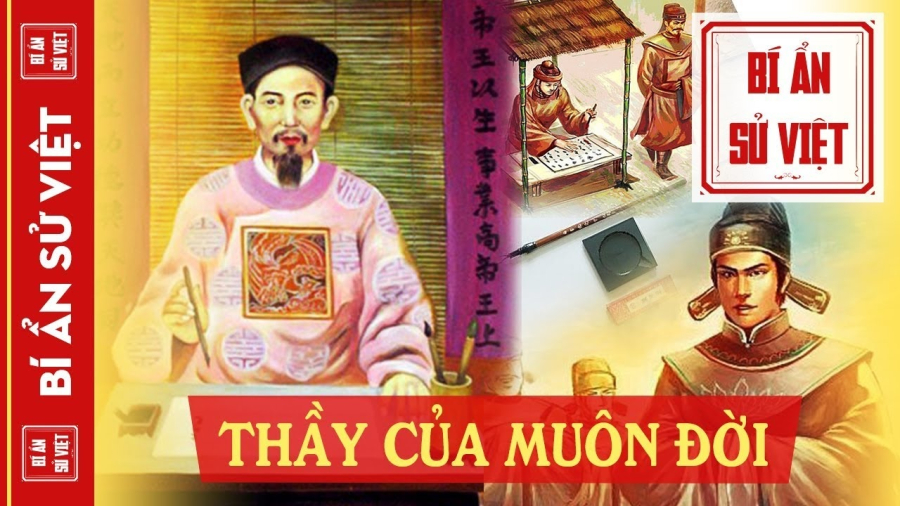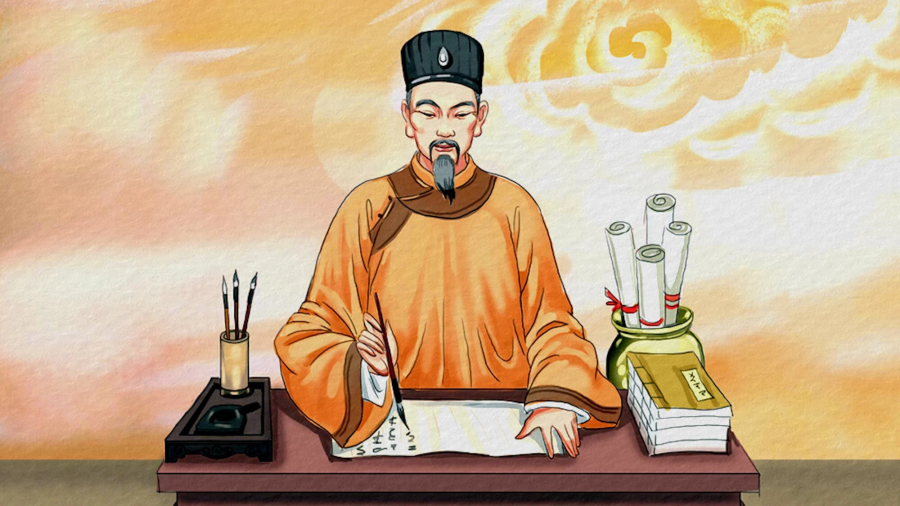The education system in our country was formed since the time of the Ly dynasty, however, it was not until Chu Van An became the Principal of the Quoc Tu Giam and personally wrote textbooks to teach his students here that our country had a true education system.
Chu Van An is a famous teacher of the Tran dynasty as well as our country’s history. During his lifetime, he believed that “to teach students well, the teacher must be strict”. Pham Su Manh, one of his famous students, became a famous court official, but when he made a mistake, he still had to kneel down and confess with his teacher.

A lifelong dedication, setting an example as a teacher
Chu Van An once believed that “we study not to become officials, but to become good people”. This viewpoint has deeply ingrained in his educational philosophy.
When Tran Nghệ Tông ascended the throne, Chu Van An went to the capital to meet the new king, but he refused any noble title. Many students followed and asked, “Your students range from the king to numerous scholars and officials, why don’t you stay and take up an important position? Do you underestimate the noble titles of the court?”
Chu Van An said, “The importance of a person lies not in their titles, but in their value. If one can hold a small position that benefits society, it is worthy of great appreciation. However, if one holds a high position but does nothing beneficial for the people and the country, then what meaning does that noble title have?”.
He always believed that “to teach and educate students well, the teacher must be strict, serving as a shining example”. His former students, even famous court officials like Pham Su Manh and Le Quat, still showed respect when visiting their teacher. If they did something wrong, he would still give them strict guidance.

According to the book “Teachers in Vietnamese History”, once when the Chancellor Pham Su Manh visited his teacher, he went through a local market where people were busy buying and selling. To make way for the procession, the soldiers waved their whips, shouting loudly, creating a noisy atmosphere in the area.
When this matter reached Teacher Chu’s ears, he pointed straight at Pham Su Manh’s face and reproached him: “Coming to visit your teacher and causing such turmoil among the people, how can I raise my head to look at others?”. After saying that, he brushed off his clothes and went into the house. Chancellor Pham Su Manh was both afraid and remorseful, so he knelt down beside the bed, waiting for his teacher to forgive him before he dared to leave.
Since then, whenever he visited his teacher, Chancellor Pham Su Manh only wore plain clothes and walked alone like an ordinary person, in order to honor the teacher-student relationship properly.
During the reign of Tran Du Tong (1341-1369), the king only indulged in pleasure, neglected state affairs, trusted flatterers, and the country declined. Faced with this heartbreaking situation, Chu Van An brought forth a “list of decapitation”, requesting to behead the 7 flatterers in the court who were favored by the king.
When there was no response, and knowing that the situation could not be changed, Chu Van An hung his clothes and hat at the Huyen Vu gate (the northern gate of Thang Long Citadel) to report the officials to the Phuong Hoang mountain in Chi Linh, Hai Duong, and retreated into seclusion. He spent his final years here with the pseudonym of “Tieu An” (a recluse in the forest).
Successful students still showed respect to their teacher
Once, when Pham Su Manh visited his teacher, the soldiers who followed him caused chaos in the market. When Teacher Chu heard the news, he scolded them, saying “Coming to visit your teacher and causing such turmoil among the people, how can I raise my head to look at others?”. After saying that, he brushed off his clothes and went into the house. Chancellor Pham Su Manh was both afraid and remorseful, so he knelt down beside the bed, waiting for his teacher to forgive him before he dared to leave.
Pham Su Manh’s real name was Pham Do, also known as Nghia Phu, Uy Trai, and Hiep Thach. He was from Hiep Thach village, Hiep Son district, Kinh Mon prefecture (present-day Kinh Mon, Hai Duong).

In addition to Pham Su Manh, Chu Van An also trained another talented person for the Tran dynasty, Le Quat. He was from Thanh Hoa, a fellow student of Pham Su Manh, and they both passed the Thai Hoc examination.
Chu Van An initiated a true educational reform. He began to compile the “Tu thu thuyet uoc” (Four books and five classics), consisting of 10 volumes. This was the first teaching curriculum in our country.
At the invitation of King Tran Minh Tong, Chu Van An accepted the call to serve the country. He held the position of Tu Nghiep (Principal) of Quoc Tu Giam. Later, due to King Tran Du Tong’s extravagant behavior, corrupt court politics, he hung his hat at the Huyen Vu gate and returned to his hometown to retire.
































